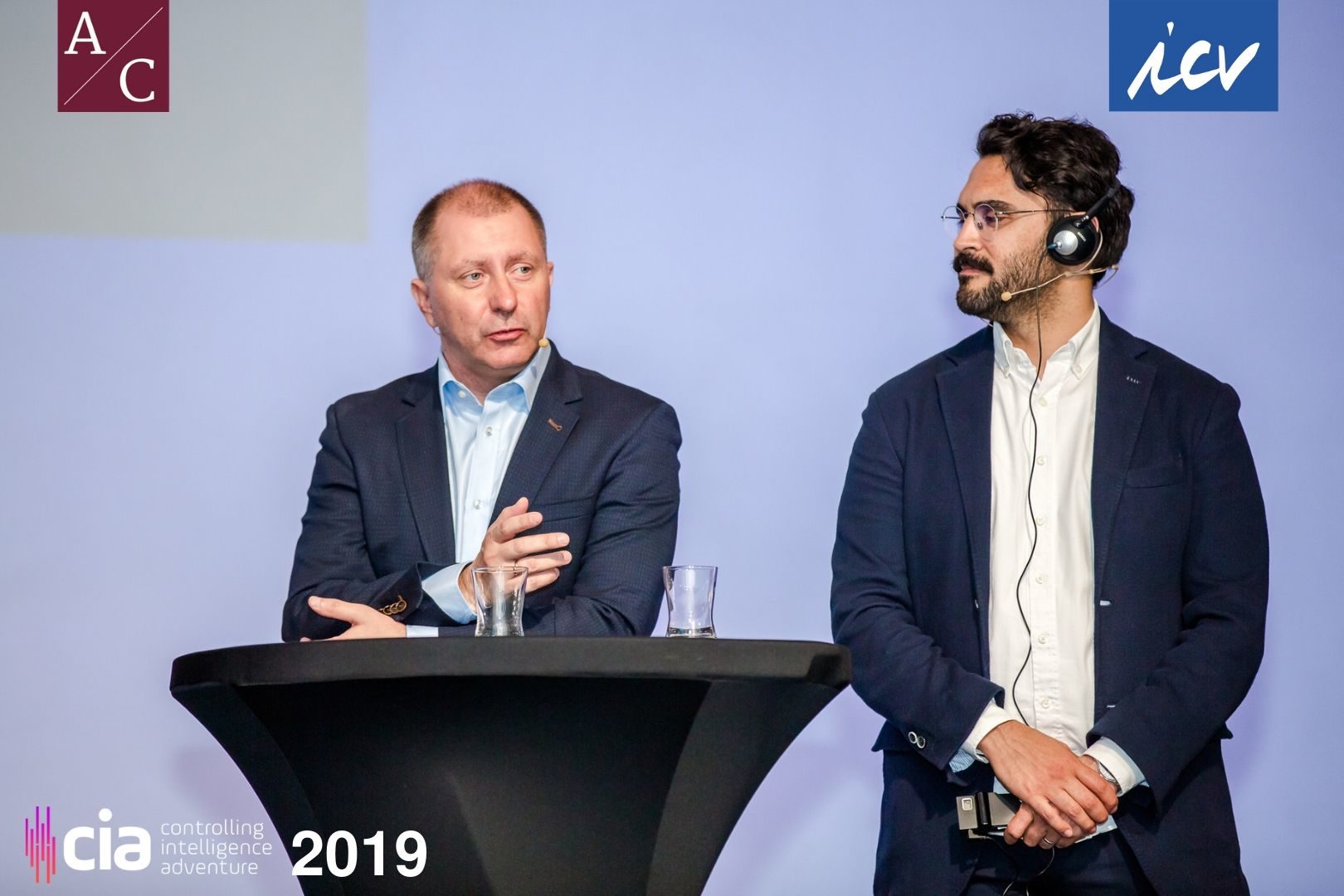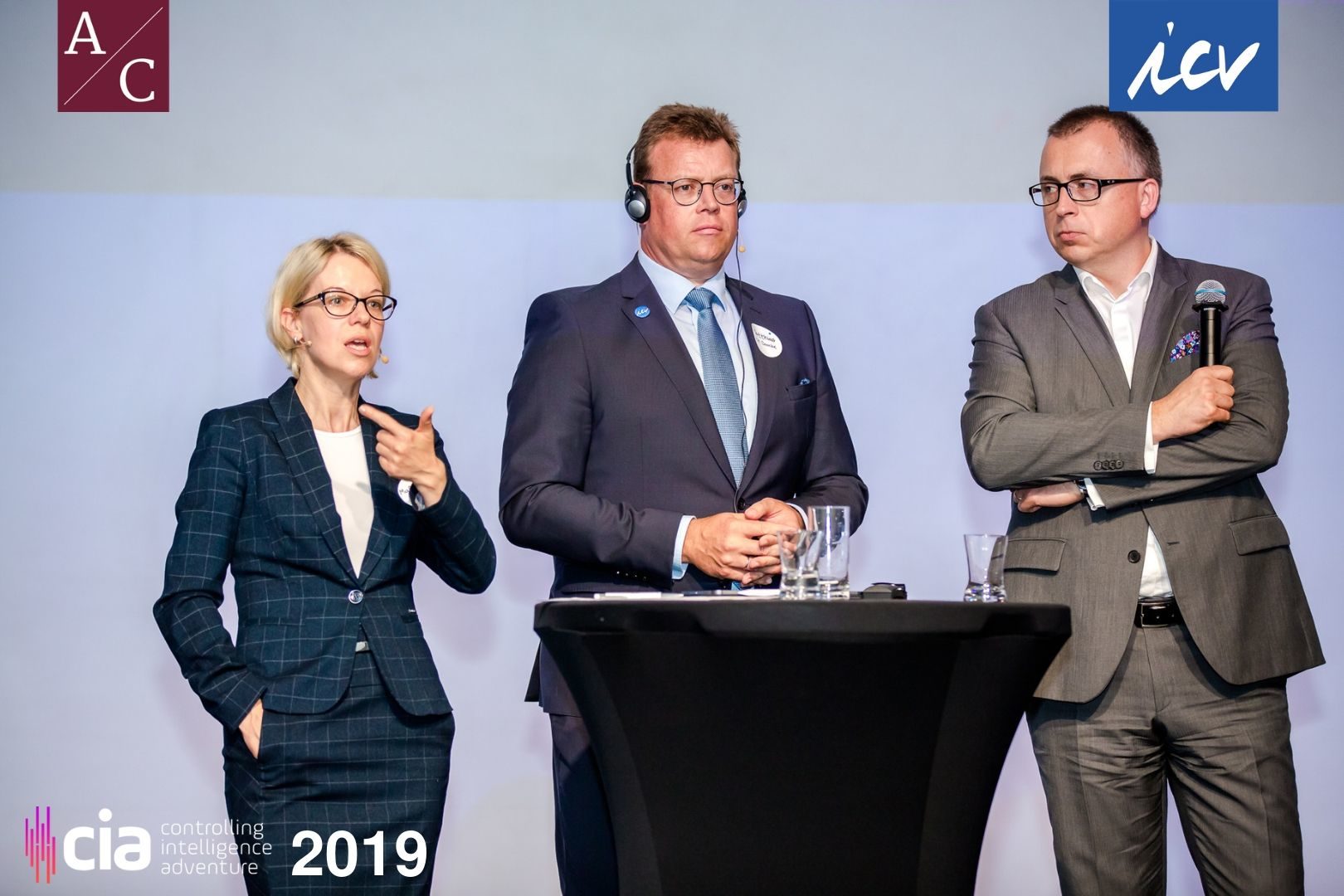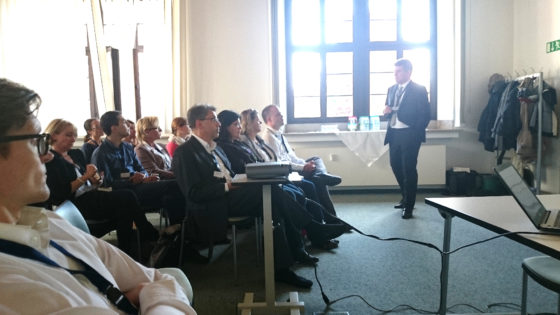
One of the highlights of the 13th International Controller Congress in Warsaw, Poland, was a discussion panel with Polish and international guests. The discussion was focused on the topic “Challenges of controlling 4.0 in digital business models” and the discussants were:
- Paweł Rafalski, CEO, President at Solet Sp. z o.o.
- Marcin Bielecki, Cloud & Analytics Business Unit Leader at IBM
- Matthias von Daacke, Vice Chairman of the ICV and Member of the Board and Director of Controlling at BLANCO Group
- Muzaffer Yilmaz, Head of Finance at Church & Dwight Germany
The panel was moderated by Małgorzata Podskarbi, Member of the ICV Board, Director at Volkswagen Poznań. The discussion focused on two areas:
- How to use systems supporting Big Data processing for controlling applications?
- To what extent does being a Business Partner in the digital world also mean being a Data Scientist?
Małgorzata Podskarbi first introduced the topic. 80% of the leading companies say that digitization improved their rentability. What should controller do to survive and win?
Marcin Bielecki: Digitization means evaluation of the controller’s role. Controllers should be able to change from the role of number cruncher to a business sparring partner. Not only words but also numbers – numbers, use cases – it has already happened!
Matthias von Daacke: Digitization means new data and new opportunities. No need to be afraid, although it brings new technics and new tools – a controller should learn and then help managers to copy with them. Because digitization is not only about tools but also about PEOPLE. What competences controllers need? Ability / willingness to learn and change. And on the hard side – making familiar with new tools, new potential data / instruments / maybe mobile reporting? They can change the controller’s work and contribute to the success of the company.

Muzaffer Yilmaz gave some insights on controllers’ competencies in start-ups. They are though similar to those in other companies: Controllers should show willingness to identify missing processes. They should also be ready to change and find new ways of dealing with every-day work.
Paweł Rafalski: New models, trends – that’s great that we can use some new technologies, but people are the key – their mentality, approach to these new tools in a business context. Controllers should help managers use these tools – managers need someone to help them use technologies in the business. Because managers are often pioneers in using technologies, they are the quickest in using new tools, but controllers must help them interpret and understand data so that they could use it in business.
Marcin Bielecki: Cloud is a chance and it’s worth trying. Some say it’s not safe – all right, we do give the control to someone else. But: The most important thing in our life is health – and we go to a doctor when we don’t feel well, we don’t know what the doctors are doing during operation and we still trust them. Education: We trust the teachers and professors. Finance: We use banks, investment companies. We give someone the control away. And we are experts in what our companies produce / do. But we can and should trust other experts in what they’re doing best – cloud solutions.
Paweł Rafalski: Yes, we go to a doctor but then go home as soon as possible. The same in controlling. A hybrid is the best solution.
Matthias von Daacke: As a head of controlling you should work as in a professional sport team. You must push and push and push to the limits when the team is good. But when it’s getting worse – you must support them.
Muzaffer Yilmaz: Agile work methods, e.g. design thinking, scrum – it’s hard to identify priorities. Filter, what’s best! We don’t use sprint – in the common meaning. But what we try to implement, is 1-2 days of work of our team members and then check.
Marcin Bielecki: Digitization changed not only controlling, but also other business areas where digitization helped improve processes. An example: Jastrzębska Spółka Węglowa (a large coal mining company in Poland) with an interesting implementation. First step was analyzing the causes of accidents (average: 3 accidents per day in each mine!). 2. Analyzing from which mine walls to extract, and which are better to let go. Another example: There are tools for planning productions. Another: The sweets market. There are tools to examine demand in different periods in individual voivodships.
Paweł Rafalski: I also have an example from a mine. What does “a progress” mean. We worked with a controlling team – and when we talked, I realized that nobody from them was down, in the mine. As a controller you must get down, see for yourself, examine, understand the work of the company – to understand data and numbers in your Excel. So, we all went down to the mine.
I’d like to point out that by 2020 of all 50% the working people will become “digital natives”. So how not to sleep through the digital transformation? We don’t even know what we’re able of doing. How can we keep up? Start exploring. Start with small things, small projects. Try the machines. A digital must have: eye tracking and machine learning.
Marcin Bielecki: Let’s identify problem first and then choose tools. But you must know what’s available. For me it’s the advanced analytics.
Paweł Rafalski: From a controller to a data scientist. I think a controller is a data scientist – they interpret data.
Matthias von Daacke: I don’t think a controller has to be a data scientist. But they must understand what they’re doing. Cloud is not only about data storage but also about tools to use them. Shape data structure.
Muzaffer Yilmaz: What about start-ups? A controller is a data scientist a bit. In my team we accept that controllers don’t have economics education but are e.g. mathematics.
Paweł Rafalski: We need new study programs; my daughter has math and Python during economic studies. Everything changes.
Matthias von Daacke: Nowadays you hire a character (passion, curiosity, pushing the limits…) and teach skills. It’s the mindset that counts!
Marcin Bielecki: Mistakes in implementing information systems? Don’t change everything at once. The business with the IT department must agree.
Paweł Rafalski: If the controllers won’t keep up, the IT will deliver data – and the controllers will stick in numbers. But beware, IT will deliver unprocessed data directly to the management and neither side will be satisfied. And it may turn out that we will return to controlling from 20 years ago in Poland. Controller = accountant. We must change and learn to cooperate!



